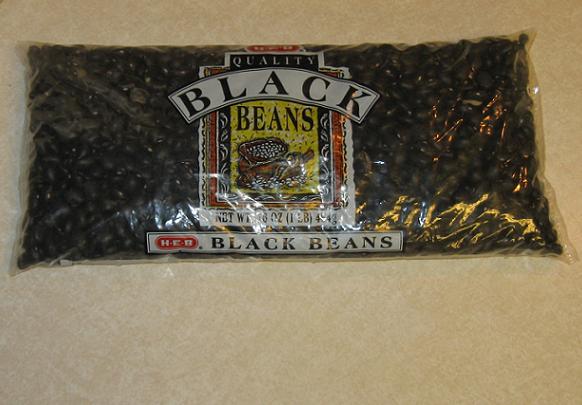Thanks again to Kevin Deeth for another great post! The timing of this information is perfect considering the heightened awareness of processed foods and their toxicity to our bodies. All of our low-fat diet foods are simply free radicals gone wild! Old cousin Joe (see Free Radical post) is throwing an all nighter in our guts when we eat these foods! Remember that the Adkins diet may have seemed great at the time, however Dr. Adkins is now unfortunately deceased. Vitality is the key–focus on lifestyle changes, not dieting!
Kevin writes:
I read a great article on the Wall Street Journal that inspired this post.
Over the last 20 years marketers and food manufactures have coaxed consumers into believing that the cause of rising obesity rates is due to our surplus fat intake. Consumers make choices they believe are healthy based on “healthy labels” when in fact they are not.We’re bombarded with supposedly guilt-free options: baked potato chips, fat-free ice cream, low-fat candies, which people think are healthy options because they are marketed as “low-fat” or “natural”. Yes, a high amount of saturated fat and trans fat is not good, but healthy fats such as the monounsaturated fats, polyunsaturated fats, and omega-3s have the opposite effect and are essential to a healthy/well-balanced diet.


Myth: All fats are equal—and equally bad for you.
Fact: Saturated fats and trans fats are bad for you because they raise your cholesterol and increase your risk for heart disease. But monounsaturated fats and polyunsaturated fats are good for you, lowering cholesterol and reducing your risk of heart disease.
Myth: Fat-free means healthy.
Fact: A “fat-free” label doesn’t mean you can eat all you want without consequences to your waistline. Many fat-free foods are high in sugar, refined carbohydrates, and calories.
Myth: Eating a low-fat diet is the key to weight loss.
Fact: The obesity rates for Americans have doubled in the last 20 years, coinciding with the low-fat revolution. Cutting calories is the key to weight loss, and since fats are filling, they can help curb overeating.

In recent years people have started to figure out that fat may not be main contributor to rising obesity rates, but a surplus of processed carbohydrates may actually be at the forefront of our problems. Cue, the “low-carb” diets where consumers restrict carb intake to under 100g/day. A recent article published by the Wall Street Journal claims that “A diet based on healthy carbohydrates—rather than a low-fat or low-carbohydrate diet—offers the best chance of keeping weight off without bringing unwanted side effects”… and I couldn’t agree more.
The Study

Goal: The study was designed to look at the impact of the three diets on measures of energy expenditure, in addition to assessing hormones, fat levels in the blood and other health markers.
- Participants followed a low glycemic food plan that focused on fish, fruit, vegetables, nuts and whole grains. The Study explains while people who follow a low-carb diet also lose weight effectively, they have trouble keeping it off and encounter unwanted side effects.
- Participants were placed on one of three diets for a month: a low-fat diet limiting fats to 20% of total calories; a low-carbohydrate diet modeled on the Atkins diet, limiting carbohydrate intake to 10% of total calories; and a low-glycemic-index diet, which contained 40% of total calories from carbohydrates, 40% from fats and 20% from protein. Participants were then switched to the other two diets during two additional four-week periods.
Results
- “The low-fat diet had the worst effect” on energy expenditure, Dr. Ludwig said. Participants on that diet also had increases in triglycerides, a type of fat, and lower levels of so-called good cholesterol. “We should avoid severely restricting any major nutrient and focus on the quality of the nutrient,”
- The low-carb diet had the biggest boost in total energy expenditure, burning about 300 calories more per day than those on the low-fat diet—about the same as an hour of moderate exercise. But that bump came at a cost: increases in cortisol, a stress hormone, and a measure of inflammation called CRP, which can raise the risk of developing heart disease and diabetes.
- Those on the low-glycemic-index diet burned about 150 calories a day more than those on the low-fat diet without any negative impacts on cholesterol levels or various hormones, making it the ideal diet, Dr. Ludwig said. The glycemic index measures the impact of carbohydrates on blood-sugar levels.
Conclusion and Takeaway
A balanced diet filled with healthy fats and healthy carbohydrates is ideal for loosing weight and keeping it off. Yes a low-carb diet can be effective, but you may develop other health risks, suffer from low energy levels, and risk putting weight back on. Carbohydrates are used by our body as energy that can help sustain an efficient and worth-while workout. If your workout is jeopardized due to an nonavailability of adequate energy levels from carbohydrates then your exercise goals are compromised. Just to clarify; I am not advocating people go load up on pasta, breads, cereals, and other processed carbs. The key is to make sure the carbohydrates you do consume all come with a healthy dose of fiber and protein with a low glycemic index from things like fruit, vegetables, minimally processed oats and whole grains.
My Favorite Carb Sources
Quinoa


Steel Cut Oats


Black Beans


Source:
http://online.wsj.com/article/SB10001424052702304458604577490943279845790.html?mod=e2tw
Thanks for reading and let me know if you have any comments or questions.
From South Bend,




